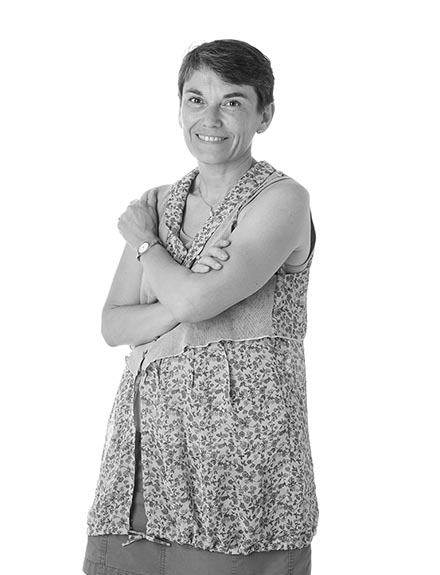| marie-hélène le ny |
|
photographist |
|
An orthopaedic surgery simulator for teaching was built by combining our skills: those of the didactics specialist who has to know what knowledge is needed for a certain action, those of the surgeon who has played a part in the development of this knowledge, those of a computer scientist, and mine, for the protocol aspect. Once the simulator had been put together, we put it in the hands of surgeons and juniors to see how they used it, in order to improve its application, to imagine how we could remedy a mistake made by a junior, which tools we could give them, which pages of the course book they needed to read, etc. Creating IT environments for human learning is one of the objectives of the Grenoble IT laboratory. We work on this as a team, to produce intelligent and useful tools – tools which make sense." |
|
||
|
Nadine
Mandran |
|||
|
|
|
|
